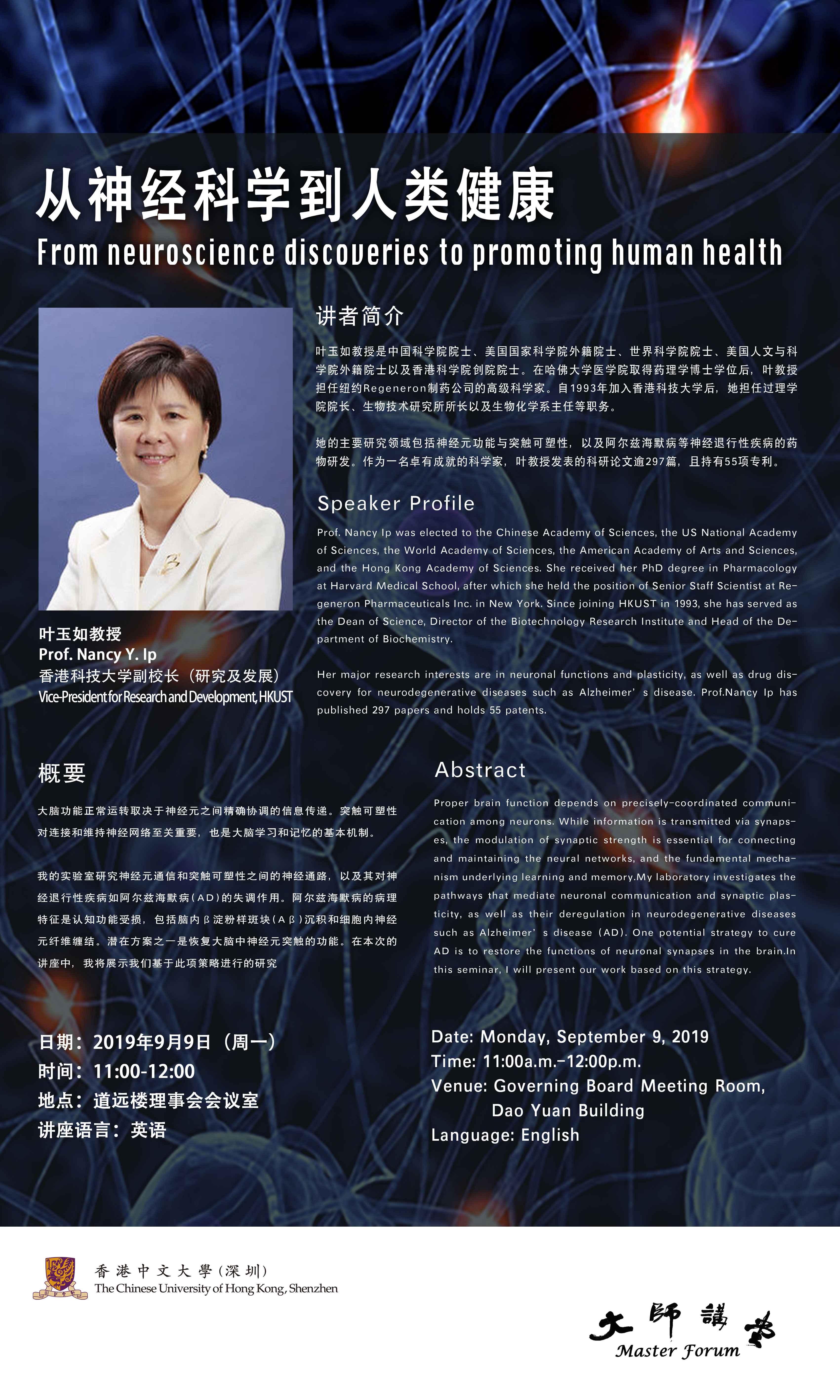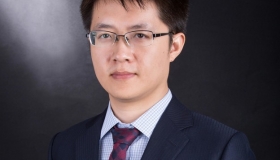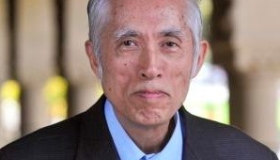【Master Forum】From neuroscience discoveries to promoting human health
Topic: From neuroscience discoveries to promoting human health
Speaker: Prof. Nancy Y. Ip
Date: Monday,September 9, 2019
Time: 11:00 a.m.-12:00 p.m.
Venue: Governing Board Meeting Room, Dao Yuan Building
Language: English
Speaker Profile:
Prof.Nancy Ip is Vice-President for Research and Development, the Morningside Professor of Life Science, Director of the State Key Laboratory of Molecular Neuroscience, HKUST. Prof.Nancy Ip was elected to the Chinese Academy of Sciences, the US National Academy of Sciences, the World Academy of Sciences, the American Academy of Arts and Sciences, and the Hong Kong Academy of Sciences. She received her PhD degree in Pharmacology at Harvard Medical School, after which she held the position of Senior Staff Scientist at Regeneron Pharmaceuticals Inc. in New York. Since joining HKUST in 1993, she has served as the Dean of Science, Director of the Biotechnology Research Institute and Head of the Department of Biochemistry.
Her major research interests are in neuronal functions and plasticity, as well as drug discovery for neurodegenerative diseases such as Alzheimer’s disease. Prof.Nancy Ip has published 297 papers and holds 55 patents. In recognition of her excellence in science, Ip has received numerous awards and honors including the National Natural Science Awards, the L’OREAL-UNESCO for Women in Science Award and the 10 Science Stars of China by Nature. She currently serves on the editorial boards of PNAS, Journal of Cell Biology, Trends in Neuroscience, National Science Review, and was the Senior Editor of the Journal of Neuroscience.
Abstract:
Proper brain function depends on precisely-coordinated communication among neurons. While information is transmitted via synapses, the sites of connection between individual neurons, it is the modulation of synaptic strength, termed synaptic plasticity, that is essential for connecting and maintaining the neural networks, and the fundamental mechanism underlying learning and memory.
My laboratory investigates the pathways that mediate neuronal communication and synaptic plasticity, as well as their deregulation in neurodegenerative diseases such as Alzheimer’s disease (AD). A leading cause of mortality in the elderly, AD is characterized by impaired cognitive functions with pathological hallmarks that include the accumulation of amyloid-beta (Aβ) plaques and neurofibrillary tangles in the brain. Given the limited success of past drug development efforts targeting the Aβ pathway, alternative therapeutic strategies are urgently required. One potential strategy is to restore the functions of neuronal synapses in the brain.
In this seminar, I will present our work based on this strategy, which has led to the identification of two cell surface receptors as potential drug targets for AD, and provided vital insights for the development of new intervention approaches. Our findings have also unveiled the critical role of microglia, the immune cells of the brain, in clearing Aβ plaques in AD. I will also cover our work aimed at understanding the role of genetics in AD, for which we have established a platform to identify the genetic risk factors for AD in the Chinese population. Through these efforts, we are elucidating disease mechanisms and developing methods to predict an individual’s disease risk, which in the long run will facilitate development of preventive and therapeutic interventions to manage this devastating disease.





